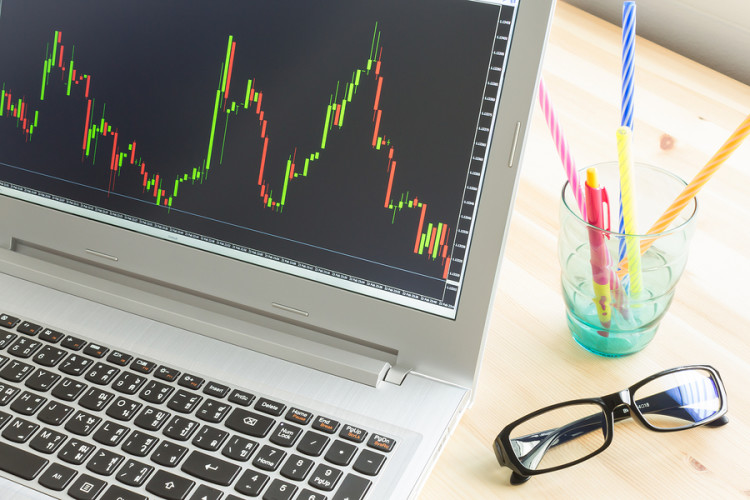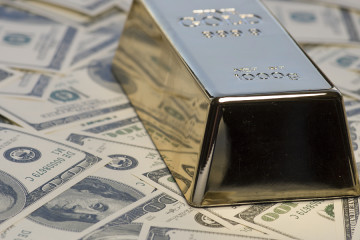Global Earnings Tumble as Companies Dig Deeper for Cost Savings

published Jul 31st 2016, 6:01 pm, by Thomas Black
(Bloomberg) —
Corporate earnings are heading for a fifth straight quarter of declines, dragged down mostly by energy companies’ struggles with low oil prices and a tepid global economy that threatens to throttle sales growth in many industries.
U.S. companies as varied as hamburger chain McDonald’s Corp. and Honeywell International Inc., a maker of gas-processing equipment and cockpit controls, have slashed costs and bought back shares to help earnings. Amid a worldwide sales slog, European pay-TV operator Sky Plc and South Korea’s Hyundai Heavy Industries Co. are crimping expenses to boost profit.
John Carey, a Boston-based fund manager at Pioneer Investment Management Inc., calls it earnings engineering, and he’s seen it before. Companies have grappled with a lackluster economy for several years as the U.S. manufacturing recovery sputtered, the world economy slowed and oil prices fell to $50 a barrel from more than $100 in 2014.
“There hasn’t been a lot of what you might call real, honest earnings growth through sales and business improvement and expansion of operations,” said Carey, whose firm oversees about $240 billion of equities and fixed income worldwide. “They just keep digging deeper into the hat and finding hidden rabbits and new ways to generate earnings.”
The global economy is forecast to expand 2.9 percent this year, according to the average estimates of economists surveyed by Bloomberg. That’s the lowest rate since 2009, with the U.S., European Union, China and Mexico all expected to post slower growth this year from 2015.
With about two-thirds of Standard & Poor’s 500 Index members having reported, earnings have declined 3.3 percent from a year earlier and sales have slumped 0.5 percent. Excluding results from energy companies, earnings have risen 1.1 percent and sales have gained 3 percent.
Asia and Europe have fared worse. With 294 companies on the MSCI AC Asia Pacific Index having announced results, earnings have plummeted 19 percent. In Europe, profits have dropped 14 percent with results in from almost two-thirds of companies on the Stoxx Europe 600 Index.
With the third quarter in full swing, there are reasons to remain cautious, said Mark Luschini, chief investment strategist at Janney Montgomery Scott LLC, which manages $54 billion. Operating profit margins for the S&P 500 fell below 12 percent for the first time since 2010 and may deteriorate further as wage pressure begins to kick in.
‘Margin Decay’
“There’s been margin decay over the last couple of years, and I expect we’re going to continue to see that more if we see hiring and wage gains occur,” Luschini said. “That will only put further pressure on margins in the absence of top-line revenue growth.”
In the second quarter, oil producer ConocoPhillips posted a loss of $1.1 billion, its fifth straight. Caterpillar Inc., the large maker of earth-moving equipment, lowered its forecast for 2016 sales and earnings for a second time after posting a 16 percent decline in second-quarter revenue.
Sony Corp. earnings per share dropped 76 percent in the three months ended June on an 11 percent decline in sales. Profit at Mitsui OSK Lines Ltd., Japan’s second-largest shipping company by market value, slumped 89 percent.
The earnings decline for S&P 500 companies probably hit bottom with the first quarter’s 6.7 percent drop. Profits are expected to resume growth this quarter, although a big reason is that companies will lap profit weakness that began a year earlier, said Jill Carey Hall, a U.S. equity strategist with Bank of America Corp.
“We definitely need to see a pickup in sales growth to make us be a bit more positive on the trajectory for the market,” Hall said. “We have been stuck in this slow, sluggish sales-growth environment, and you’re finally seeing some very early signs of a pickup.”
Brexit Looms
Any fragile recovery of earnings could be hurt by Britain’s decision to leave the European Union, the so-called Brexit, which has made companies more cautious as they sort out the effects, Hall said. There are also concerns related to the U.S. presidential election and an increase in terrorist attacks across the globe.
For General Motors Co., Brexit “has put a strain” on the U.K. auto market. Coupled with the weaker pound, that could hurt revenue by $400 million in the second half of this year, Chief Financial Officer Charles Stevens said. At Ford Motor Co., CFO Bob Shanks said Brexit will cost his company about $200 million this year, rising to $400 million to $500 million in 2017.
U.K. broadcaster ITV Plc, known for the drama series “Downton Abbey,” is aiming for cost savings of 25 million pounds ($33 million) in 2017, including job cuts, as it prepares for what it described as uncertainties in the economic outlook following the country’s vote to leave the EU.
Stocks haven’t been fazed by political events or even terrorist acts. The S&P 500 closed at a record high on July 22, and the FTSE 100 rose to its highest level this year July 27. The S&P 500’s ratio of price to earnings has topped 20 times for the first time since 2009.
Rebound Seen
Jim Paulsen, chief investment strategist at Wells Capital Management, isn’t alarmed by valuation after the S&P 500 gained 19 percent gain from its low this year on Feb. 11. The market is forecasting an economic rebound that will spur earnings, he said.
Paulsen, whose firm manages about $340 billion in assets, said a Citigroup index measuring data surprises relative to market expectations has turned positive in July for the first time since the beginning of 2015. Consumer confidence, new home sales, retail sales and industrial production have all outperformed estimates.
A turn in commodity prices should buoy emerging-market growth and stimulus may help Europe turn the corner, Paulsen said. With an uptick in the global economy and energy profit no longer dragging as last year’s weakness is lapped, companies may begin to post solid earnings growth, he said.
“Expectations always go too far,” Paulsen said. “They get too optimistic on earnings when reality has already turned down, and then they get too pessimistic on earnings when the rally already turned up.”
Tech Shines
One bright spot has been technology, where results from Google parent Alphabet Inc. and Apple Inc. are helping to boost the sector by the most in eight years. The group’s 5 percent gain since earnings season began is the best among 10 S&P 500 industries, and its lead over the broader index during that period is the biggest since 2008.
Facebook Inc.’s earnings almost doubled to 97 cents a share in the second quarter as sales of video and Instagram advertising climbed 59 percent. Alphabet posted sales and earnings that beat analysts’ estimates on more ad sales to mobile users and better cost controls.
Uniqlo Co., the Japanese maker of casual apparel, beat analyst estimates for third-quarter profit on better-than-expected online sales within Japan. Operating income rose 19 percent from a year ago, fueled by a 41 percent surge in e-commerce sales.
With higher valuations, the strategy of using buybacks, acquisitions and spinoffs to boost earnings is losing its effect, said Hall, the Bank of America strategist. And companies can cut costs only so much, she said. They may be running out of ways to squeeze profits.
–With assistance from Wendy Soong, Christoph Rauwald, Eric Pfanner, John Ainger, Benjamin Katz, Dave McCombs and Keith Naughton. To contact the reporter on this story: Thomas Black in Dallas at tblack@bloomberg.net To contact the editors responsible for this story: Brendan Case at bcase4@bloomberg.net Mark Schoifet, Kevin Miller
copyright
© 2016 Bloomberg L.P







No Comment